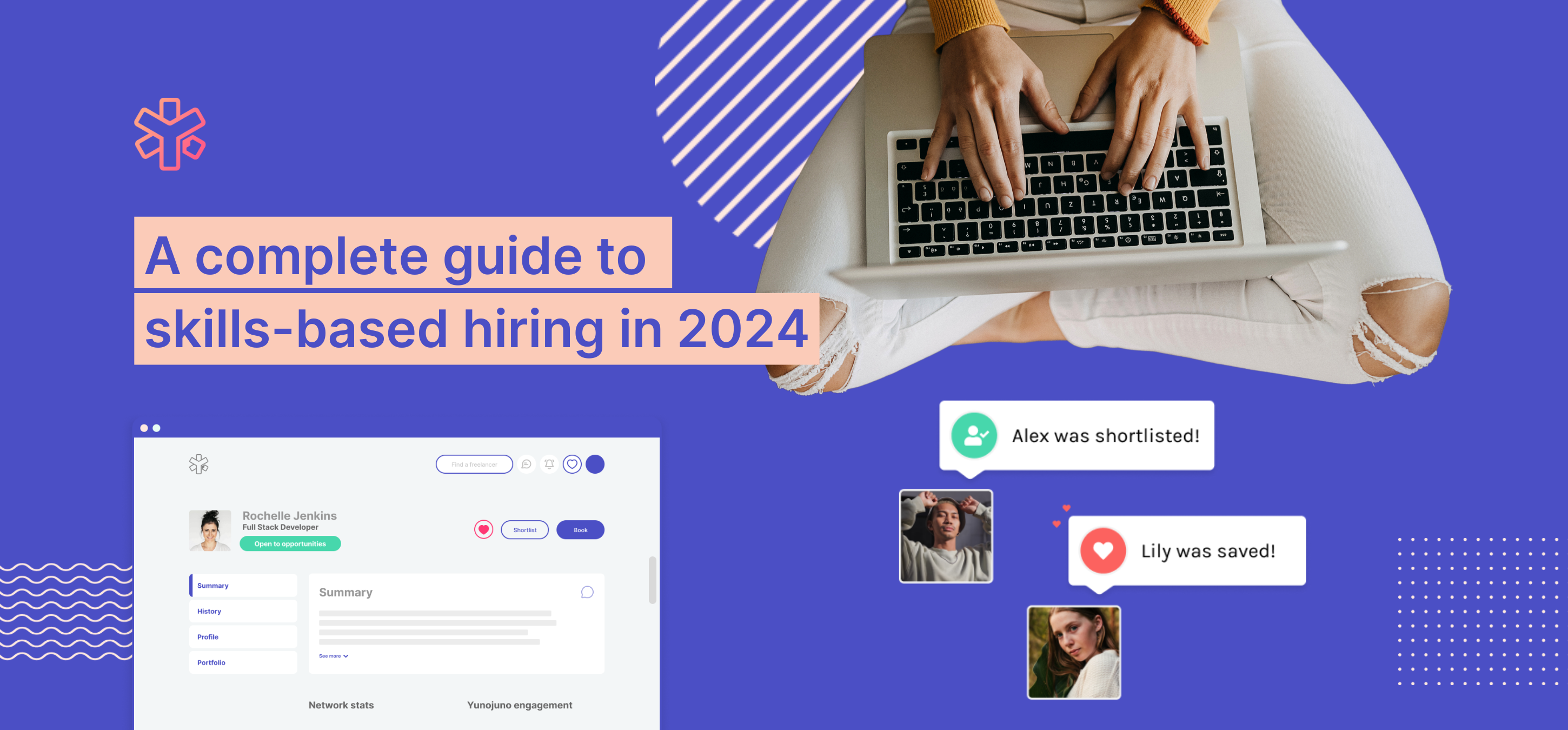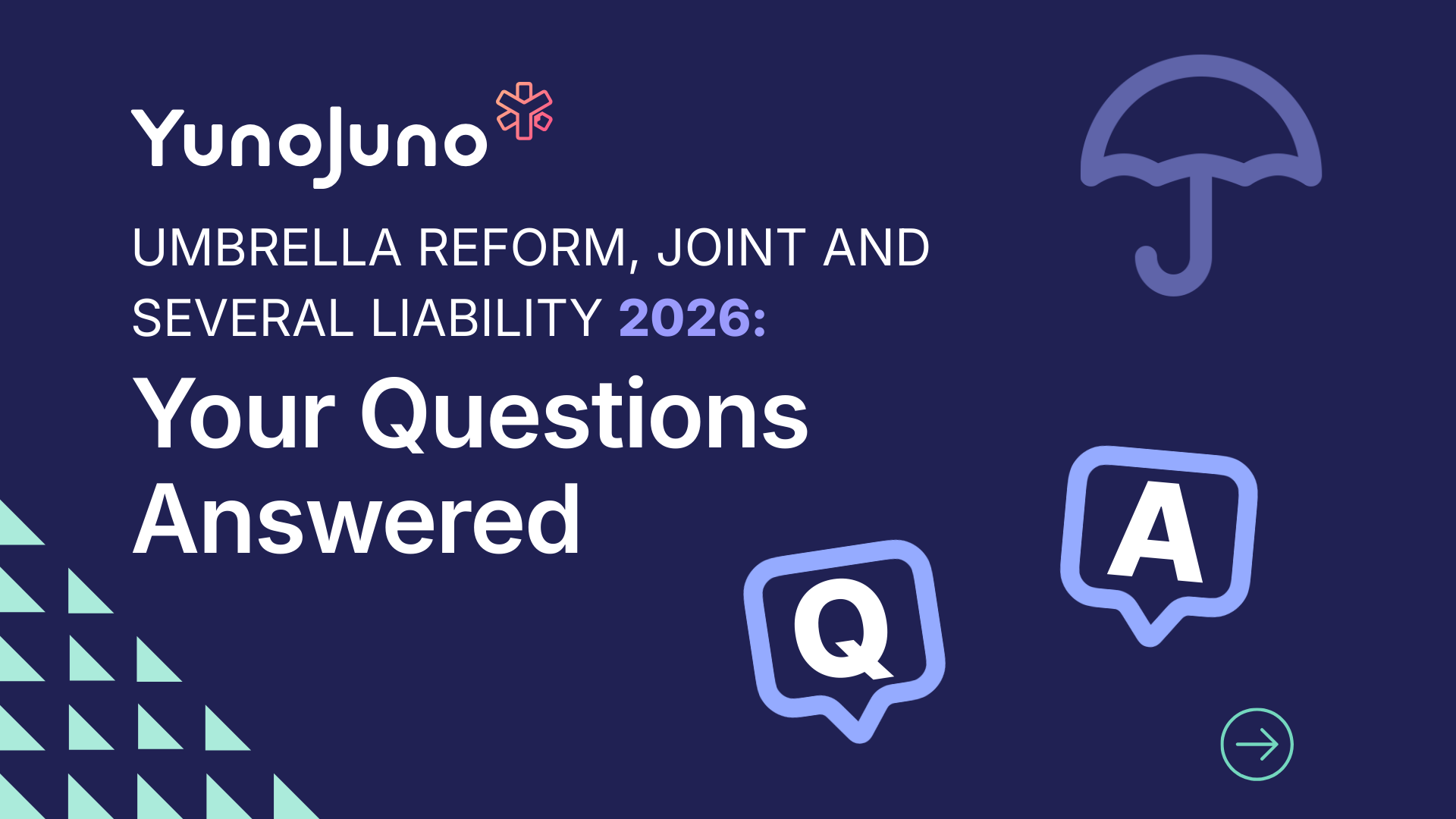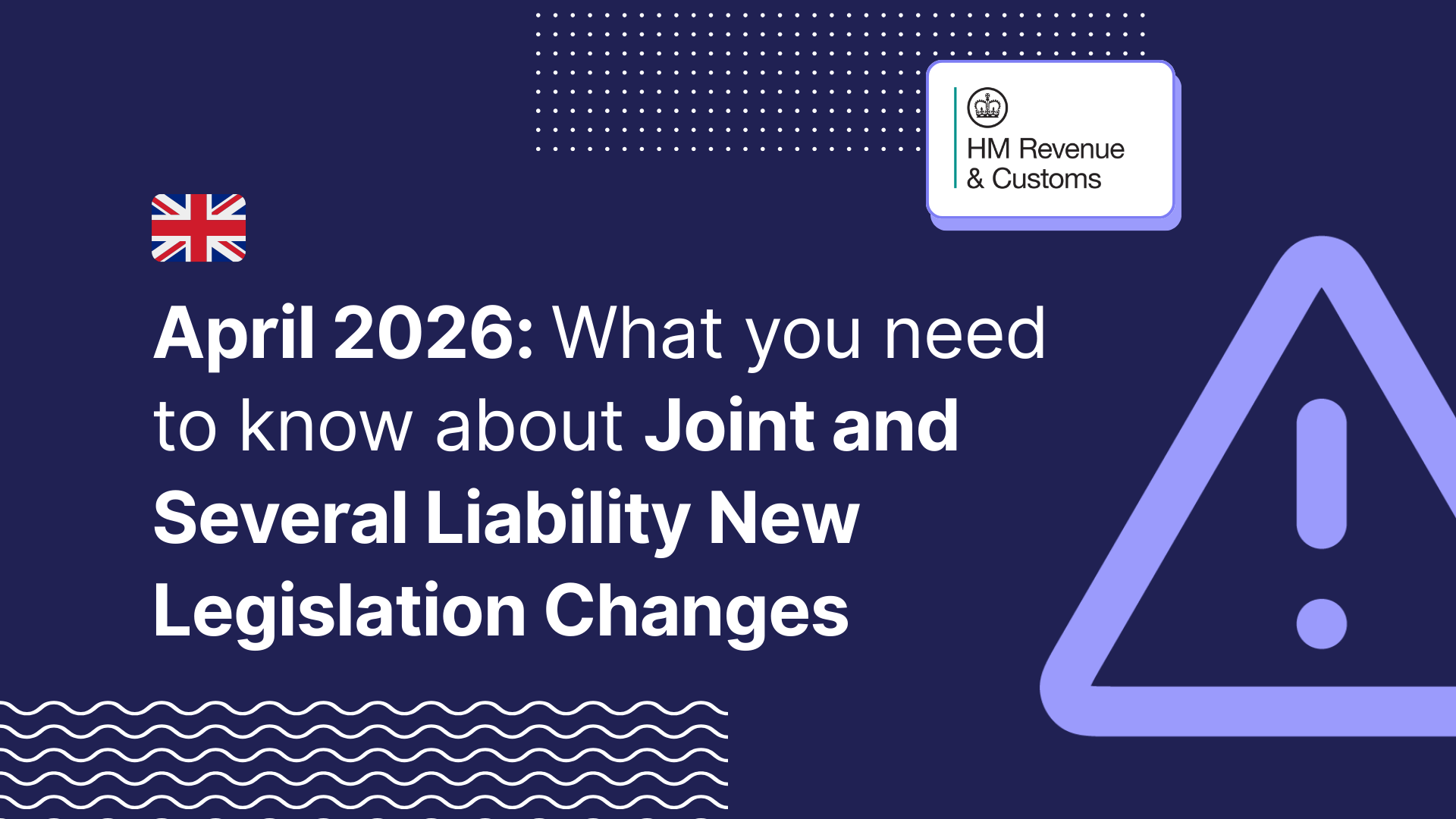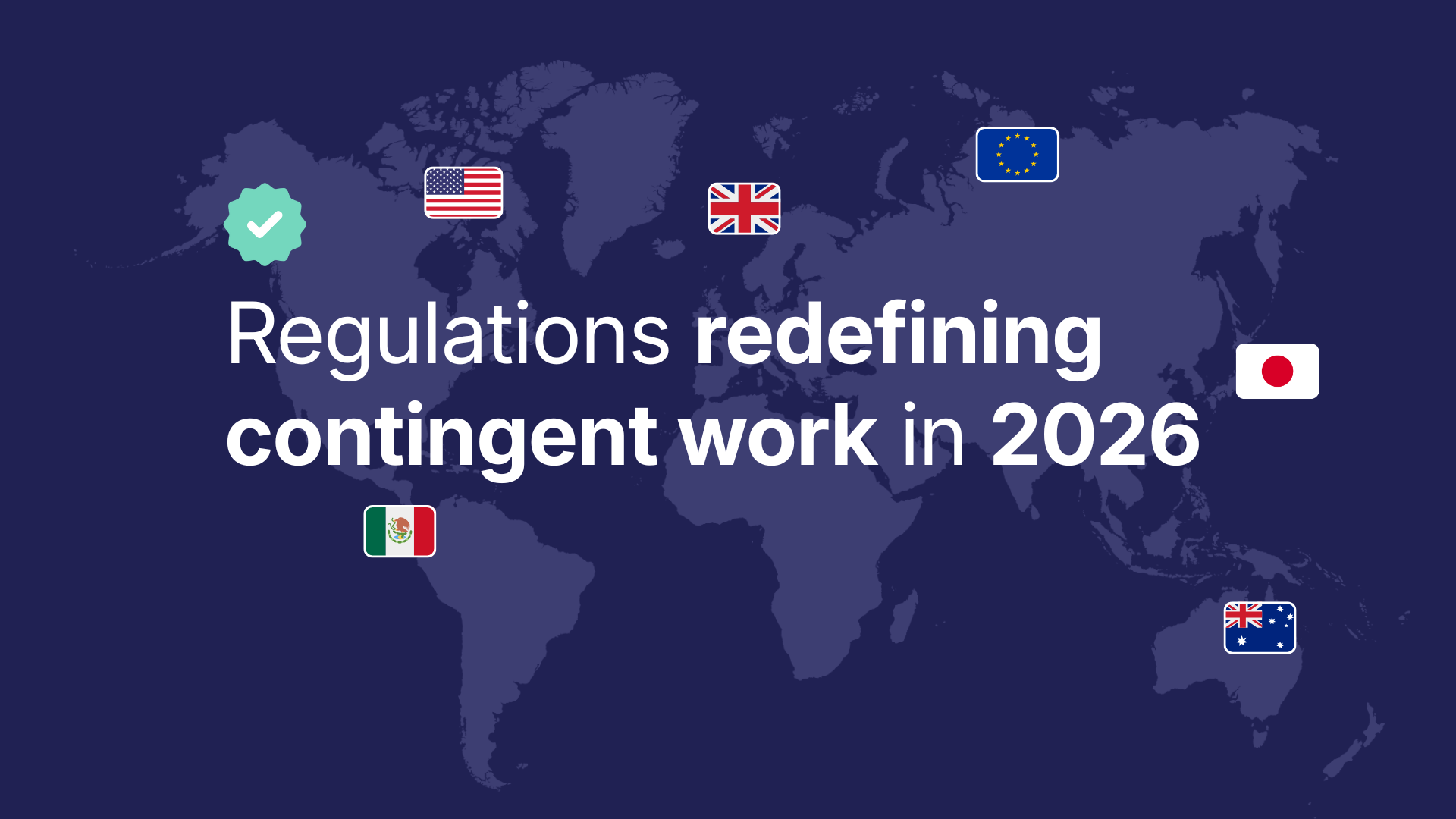When you're looking to hire a new employee or freelancer, narrowing the field based on job history or qualifications doesn't give you the best chance of finding your ideal candidate. Instead, focusing on what skills the candidates have and how they match to the job or project you need doing is a much smarter move.
In a revealing 2023 Benchmark with Gartner report, a staggering 83% of HR leaders expressed their challenges in securing talent equipped with the necessary skills for their organisations. Adding to the concern, 57% acknowledged that skill shortages are directly impacting their capacity to maintain corporate performance, underscoring the urgent need for innovative talent acquisition and development strategies.
This guide talks about why hiring based on skills is the best way to find talent in 2024 and how you can implement the practice into your talent strategy.
What is skills-based hiring?
Simply put, skills-based hiring is a recruitment practice that focuses on evaluating candidates based on their skills, rather than their experience or education. Thinking about what somebody actually needs in order to succeed in a job and working out a way to assess just those skills. This can be both hard skills like coding or design, or softer skills like interpersonal or communication skills for people management positions, for example.
Why is skills-based hiring on the rise?
Companies are continuing to find it difficult to source skilled workers and fill roles, especially for technical positions. In coming up with a solution, many have realised that by placing an unnecessary barrier at the start of the recruitment cycle, they are rejecting candidates who could perform in the role perfectly well. Their portfolio or CV might not fit the bill on face value, but their skills could be a perfect match.
Generative AI has also played its part, enabling anyone to create a portfolio of CV that looks the part but doesn’t necessarily hold up under scrutiny. Skills-based hiring ensures you recruit the right person onto your team based on what they can do, not how well they make themselves appear on paper.
Many companies have fully embraced the remote work revolution and have realised that talent is borderless. But a wider pool of talent to choose from also means that a wider pool of talent can choose you. Inundated with applications, skills-based hiring can save hiring managers time spent sifting through hundreds, or even thousands, of applicant details looking for that perfect match.
"We are seeing organisations shifting to proactively manage skills to increase their competitive advantages. This trend increases the importance of contingent workforce management programmes that can help to connect skills with talent supply whether it is contractors, freelancers and alumni."
Joao Martires, YunoJuno COO
4 benefits of skills-based hiring
There are many benefits to skills-based hiring, 4 of the top advantages are:
- Access to a wider talent pool
By looking at skills, you can find talented freelancers you might have missed otherwise.
- Better project outcomes
Hiring for skills often leads to a better job because the person hired knows exactly what you need from the start and are able to deliver using their skills.
- Reduce bias and increase diversity
A major attribute of this approach is that it helps to mitigate unconscious biases by focusing on objective criteria, promoting a more diverse and inclusive workplace. It also negates the inherent biases present in gaining an educational qualification or experience with a reputable company.
- Increase the effectiveness of your hires
Hiring for skills makes it more likely that you’ll get the right person in the right role who will be able to use their skills to make maximum impact based on your company's needs.

How to adopt skills-based hiring in your workplace
Now that we’ve covered what skills-based hiring is and listed some advantages, you might well be thinking of implementing it into your recruitment process. Here’s how to get started:
Identify the skills you need for each role
Start by breaking down the project into essential hard and soft skills. This clarity will guide your search for the right person and help you from being swayed by other factors.
Design assessments that measure those skills
While you shouldn’t ask people to do work for free, you do need to find a way to check that the skills they’ve got match what you need.
This could be a short-term project on a day rate, for example, or something more creative to find out what they can do and if they are a good match. Checking portfolios for relevancy to your project might be a good idea, depending on the role.
Replace CVs with application forms
CVs and LinkedIn profiles put an emphasis on career history and experience, not on skills. Consider designing an application form that instead asks questions about a candidate's capabilities. If possible you should mask their name and educational background and any other information that could let cognitive bias creep in.
Rework your interview process
Update your interview processes to focus on skill-based questions and scenarios, ensuring candidates can showcase their abilities in real-world contexts.
For example:
"Give an example of a time when you solved a problem using critical thinking."
"How do you handle breaks in routine, conflicting deadlines and last-minute changes?"
Update jobs descriptions
When you're writing job descriptions, make sure to clearly list the specific skills you're looking for. Think about the job you need doing and ask only for the skills to do that, removing ambiguity or vagueness.
Expand where you source talent from
Consider looking beyond your usual recruitment channels to find talent in places aligned with the skills you need. If you’re not already, you should also be considering candidates from across borders to add to your talent pool.
Revisit background checks
Use platforms and tools that offer verifiable credentials for skills, ensuring candidates' abilities are accurately represented. For example, YunoJuno vets freelancers skills for you, ensuring they have the right skills for the project.
Compensating based on skills over experience
Look into adjusting compensation models to reward skill proficiency over traditional experience markers. If you want some help setting rates, check out our 2024 freelancer rates report.

Looking ahead
Hiring has becoming a key operational challenge, causing employers to reevaluate requirements, and shift towards skill-focused hiring models. Hiring freelancers and contractors based on their specialism, flexibility and adaptability (especially in responding to economic challenges) is increasingly becoming the leading approach for businesses. It's a smart way to make sure you're getting the best person for the job, while also ensuring the diversity, equity and inclusion agenda remains at the focus.
As the demand for freelancer and contractor services increases, it's expected that these highly skilled workers will deliver a step change in efficiency and productivity to the companies who take a strategic approach to their flexible workforce, to gain a competitive advantage.
This is why YunoJuno believes freelancers and contractors are the future of work.







